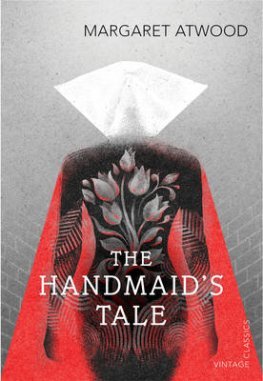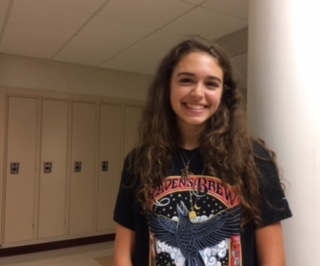REVIEW: ‘The Handmaid’s Tale’ presents relevant dystopian society
November 16, 2017
Imagine a feminist’s hell. In “The Handmaid’s Tale,” Margaret Atwood paints a vivid picture of what life would be like if the government was in control of reproduction and female fertility.
The dystopian fiction novel portrays the present day theocratic society of Gilead, where each class in the social hierarchy is designed to combat the declining reproduction rate. The protagonist, Offred, is a designated handmaid, a woman assigned to a household in order to conceive a child for the commander and his wife. In a first person narrative, Offred explains her experience of her place in this theocracy, nostalgic for the times before Gilead, when she was with her own husband and daughter.
In the story, the value of a woman lies only in her fertility. This society is a world that begins with women, as they are the sole producers of children, although their rights are stripped and regulated by men. In a society where only a commander receives privileges, women in the book, especially handmaids, are restricted from certain freedoms such as reading, writing and knowledge as a whole.
While the plot was often slow-moving, the use of social innuendos pointing to historical times made it an entertaining read. Narrated as a diary, the author mirrors Anne Frank, recording her experience for others to remember. In addition, each class of society wears a distinct color. Handmaids wear read to portray sexual sin, while Wives who are not to be touched by their husbands, wear blue, mirroring certain instances in history where minority groups such as Jewish individuals during the Holocaust were marked by their clothing in order to distinguish from other socially accepted groups.
While the book was published in 1985, it is relevant to recent controversies regarding abortion rights and dividing opinions between pro-life and pro-choice individuals, dependent on aspects such as religion and income. The book warns against a future where these rights are nonexistent, in a society which completely controls the women’s reproduction. While other dystopian books such as “1984” by George Orwell felt too far-fetched and perhaps exaggerated, “The Handmaid’s Tale” incorporates present day issues to conjure a society which would be a nightmare to women, who would receive no rights to education or reproduction.
The popular and critically acclaimed television adaptation of “The Handmaid’s Tale,” starring Elizabeth Moss, on Hulu also appeals to people’s deep fears concerning government’s imposition on privacy. Nevertheless, if you are a lover of feminist literature or dystopian fiction, this is a book to be placed on your shelf.










